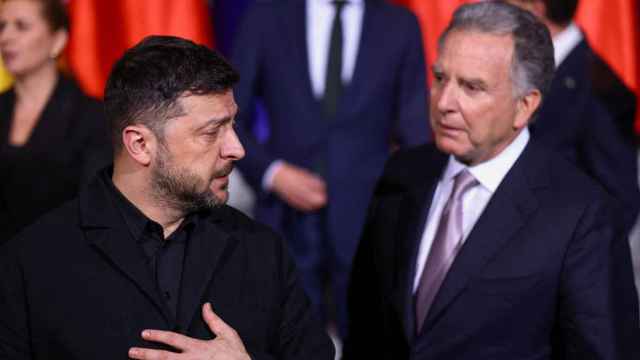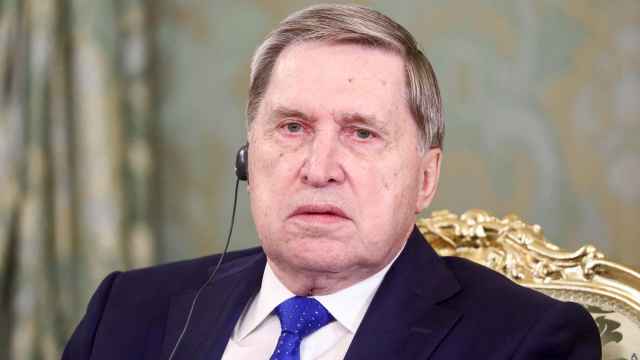The oil industry expects a 2012 windfall of almost $6 billion after changes to the oil taxation system designed to sustain high production levels came into force Saturday.
The 60/66 reform, which has been debated for more than two years, will lower the marginal rate on the export duty for crude oil from 65 percent to 60 percent in an attempt to stimulate investment in upstream developments and extend the lifespan of declining western Siberian fields.
With an average oil price of $100 a barrel, the fall in export duty will give oil companies an extra $4 to $5 in profit per barrel of oil they pump abroad. Calculations by VTB Capital suggest that this will generate the industry an extra $5.8 billion in earnings before interest, taxation, depreciation and amortization in 2012 and $7.1 billion in 2013.
About 40 percent of federal revenues comes from taxes on the energy industry, and the Kremlin has long been forced to strike a balance between squeezing as much tax as possible from the sector while allowing companies to retain enough cash to invest in the new developments that will guarantee that Russia can retain its crown as the world's biggest producer.
Crude exports have been climbing as the implementation date for the new tax regime approaches. Exports in September jumped to 5.47 million barrels a day — 7.2 percent higher than September last year and 5.7 percent more than the previous month, Bloomberg reported.
Overall profits for oil companies will be tempered by the mineral extraction tax on crude, which is due to rise 6.5 percent in 2012 and 5.4 percent in 2013.
"The net impact should not be very noticeable — at least over the next couple of quarters," said Alex Fak, an oil and gas analyst at Troika Dialog, "[but] most oil companies win from this."
However, the changes are not just a bonanza for the industry. Some experts expect the federal budget to benefit heavily. Alexei Kondrashov, global oil and gas tax chief at Ernst & Young, who was involved in the negotiations over the new legislation, told The Moscow Times that the new regime "will create an incremental increase in oil production which will, in turn, create increased tax revenues."
Kondrashov estimated that the government could receive up to 150 billion rubles ($4.7 billion) annually in additional revenue.
After the announcement of the changes, the government appeared to backtrack marginally on the commitment to lower export duties on crude. Instead of being permanent, the measure will be subject to a review signed off by the prime minister every month.
The level of export duty has a direct effect on domestic gasoline prices, a sensitive political issue as parliamentary and presidential elections approach. And Russia has had severe problems with gasoline shortages, with recent reports of a lack of fuel in the Murmansk and Kaliningrad regions. VTB Capital said in a research note Friday that more shortages were likely in the coming months.
Tinkering with the taxation system is not just designed to maximize profit, but also to nurture structural changes in the industry itself. While crude export duties will fall, the export duty for light and dark petroleum products will be calculated at 66 percent of the export duty for crude. The customs rate for gasoline and naphtha will stay at 90 percent, a measure introduced in May to guard against shortages.
These changes are designed to increase the depth of the Russian refinery system by making it more costly to export dark products like fuel oil — or mazut — thus dropping the price within Russia and incentivizing further refining.
Those who import mazut use it as boiler fuel or manufacture value-added light products that include gasoline, diesel and jet fuel.
Companies that have a strong refining focus, including Bashneft and Tatneft, would be financially hurt by 60/66, but the Energy Ministry has promised compensatory mineral extraction tax relief on some of their fields.
Some companies have already responded to the government's pressure to alter the nature of Russia's refining capabilities. LUKoil announced last month that it will be investing $3 billion in its Kstovsky refinery.
But Ernst & Young's Kondrashov said the 60/66 changes were only a beginning. "A first step has been taken, but it is a relatively small step and a very gradual step toward further reform," he said.
Russia at present uses export duties as the primary means of taxation in the energy sector as well as individual tax breaks to make production profitable in difficult-to-access greenfield sites or declining brownfields.
Grigory Vygon, director of the Skolkovo Energy Center, said last week that tax changes are essential if Russia is ever going to develop its huge hydrocarbon reserves on its continental shelf, Interfax reported. While it costs $2.2 million to drill a well in western Siberia, he said, it costs up to $200 million to drill one in the Arctic.
Kondrashov added that Russia should move toward a more profit-based taxation model like that used by other major oil-producing countries including Norway, Britain and Australia.
At the current level of oil prices export duty is, "enormously and outrageously high," he said.
| EBITDA*, $ mln | ||||||||
| 2012 | 2013 | |||||||
| Current Regime | 60/66 | Windfall | Change, % | Current Regime | 60/66 | Windfall | Change, % | |
| Rosneft | 20,750 | 22,232 | 1,482 | 7 | 21,256 | 23,005 | 1,749 | 8 |
| LUKoil | 16,793 | 17,796 | 1,003 | 6 | 17,079 | 18,381 | 1,302 | 8 |
| TNK-BP | 11,885 | 12,894 | 1,009 | 8 | 11,151 | 12,133 | 982 | 9 |
| Gazpromneft | 6,421 | 6,841 | 420 | 7 | 6,072 | 6,441 | 369 | 6 |
| Surgutneftegaz | 8,515 | 9,229 | 714 | 8 | 7,647 | 8,318 | 734 | 9 |
| Bashneft | 3,292 | 3,142 | -150 | -5 | 3,132 | 2,982 | -150 | -5 |
| Tatneft | 3,271 | 4,279 | 1,008 | 31 | 3,263 | 3,638 | 375 | 11 |
| Alliance Oil | 746 | 821 | 75 | 10 | 908 | 1017 | 109 | 12 |
* Earnings before interest, taxation, depreciation and amortization
Source: VTB Capital, MT
A Message from The Moscow Times:
Dear readers,
We are facing unprecedented challenges. Russia's Prosecutor General's Office has designated The Moscow Times as an "undesirable" organization, criminalizing our work and putting our staff at risk of prosecution. This follows our earlier unjust labeling as a "foreign agent."
These actions are direct attempts to silence independent journalism in Russia. The authorities claim our work "discredits the decisions of the Russian leadership." We see things differently: we strive to provide accurate, unbiased reporting on Russia.
We, the journalists of The Moscow Times, refuse to be silenced. But to continue our work, we need your help.
Your support, no matter how small, makes a world of difference. If you can, please support us monthly starting from just $2. It's quick to set up, and every contribution makes a significant impact.
By supporting The Moscow Times, you're defending open, independent journalism in the face of repression. Thank you for standing with us.
Remind me later.






